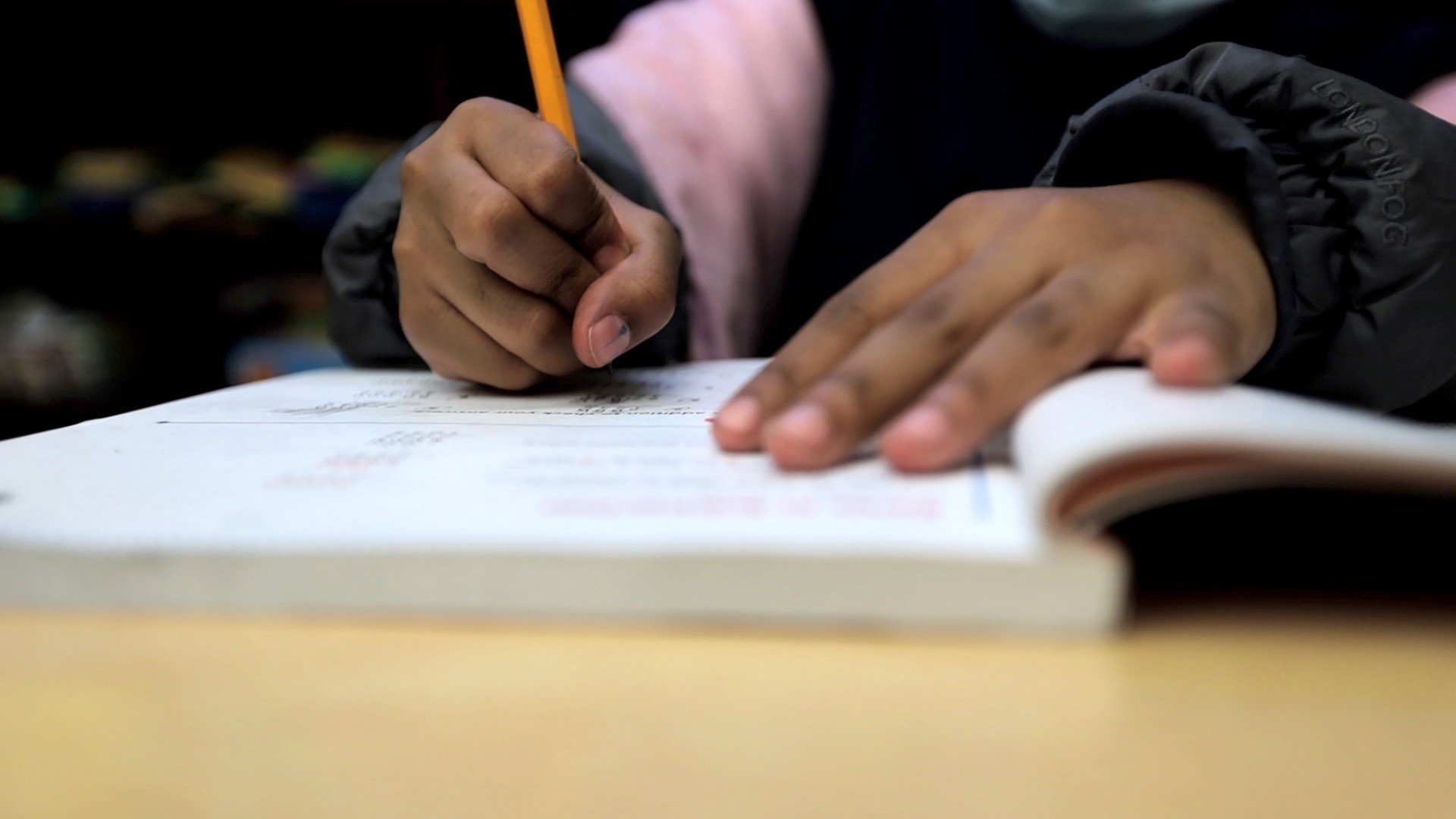HARRISBURG, Pa. — Many studies have found early childhood education reduces crime and improves graduation rates, but low-income families have limited access to pre-kindergarten services. FOX43 Reveals a closer look at Pennsylvania’s early learning landscape and what investments are needed to improve access to high-quality programs.
In the heart of Harrisburg’s Allison Hill neighborhood, young students problem solve at the Joshua Group’s after-school program. The non-profit organization provides cost-free educational programs to at-risk children in the city.
Kirk Hallett, founder and director, said the kids there have a path to success because of access to early learning.
“Over and over and over, the guys primarily who have been through Joshua Group have said to me, because I used to just grab kids off the street almost, ‘If you didn’t get me into your program and do what you did, I’m quite certain I’d be in prison.’ That’s pretty incredible when an 18-year-old and 19-year-old kid says that to you,” Hallett said.
FOX43 Reveals more than half of Pennsylvania kids do not have access to public pre-kindergarten programs. There simply are not enough slots and the cost of child care in the Commonwealth is rising.
A Pennsylvania State University at Harrisburg study found child care costs, on average, $290 per week—and the higher the quality, the higher the price. Parents dish out more than $32,000 a year for top tier programs, according to the study.
FOX43 Reveals spoke with the Pennsylvania State Education Association (PSEA), the state’s largest teachers' union, about the issue.
“We definitely need to invest more federal and state funding into early childhood education,” said Chris Lilienthal, assistant director of communications for PSEA.
Rachel Yonkunas: Are you having those talks to really get this point across?
Chris Lilienthal: Well, this has been a priority for PSEA going back many, many years now. There is funding from the American Rescue Plan that is going to the state to address statewide investment so we certainly will be advocating in the coming year for some of that funding to be invested in early education.
In October, the Wolf Administration announced a $30 million increase in state funding to expand early childhood learning to more than 3,200 additional children. A $25 million increase will go to Pre-K counts to serve an additional 2,900 children, and the additional $5 million will go towards the Head Start Supplemental Assistance Program to serve 300 more children and their families.
A new report suggests the state’s investment isn’t large enough. According to the National Institute for Early Education Research, Pennsylvania would need to increase its spending on early learning by $250 million to ensure all children have access to high-quality programs. It also states another $57 million would be needed to fully fund the state’s Head Start program. Early childhood education advocates believe it is worth the money.
“Consequently, this is a huge return on investment,” said Mark DiRocco, executive director of the Pennsylvania Association of School Administrators (PASA).
Mark DiRocco: It’s being accepted on both sides of the aisle as well. There’s really not an argument anymore as to whether or not we should be doing this for young children.
Rachel Yonkunas: So what’s blocking that from happening?
Mark DiRocco: Well, I think it’s a combination of things. One is there’s a reluctance to mandate it. So right now, you have to send your child to school in Pennsylvania once they turn 5 years old. There’s no mandate for preschool education so then how do you make it available and affordable without a structure behind it?
Universal pre-kindergarten is being debated on Capitol Hill in Washington, D.C., but in Harrisburg, Hallett said state leaders need to first focus on areas like the very city they work in, where hundreds of kids are on the waiting list for pre-k programs.
“It’s easier to rebuild a child than repair a failed system,” Hallett added. “And the system failed because, largely, we don’t prepare the students to be successful.”
The Department of Human Services plans to distribute $655 million in funding from the American Rescue Plan to stabilize Pennsylvania’s child care industry. Licensed child care providers can apply for funding through January 31, 2022.
FOX43 Reveals issues that affect you and your family to keep you informed. Do you have a topic you want us to investigate? Send us an email at FOX43reveals@FOX43.com.

